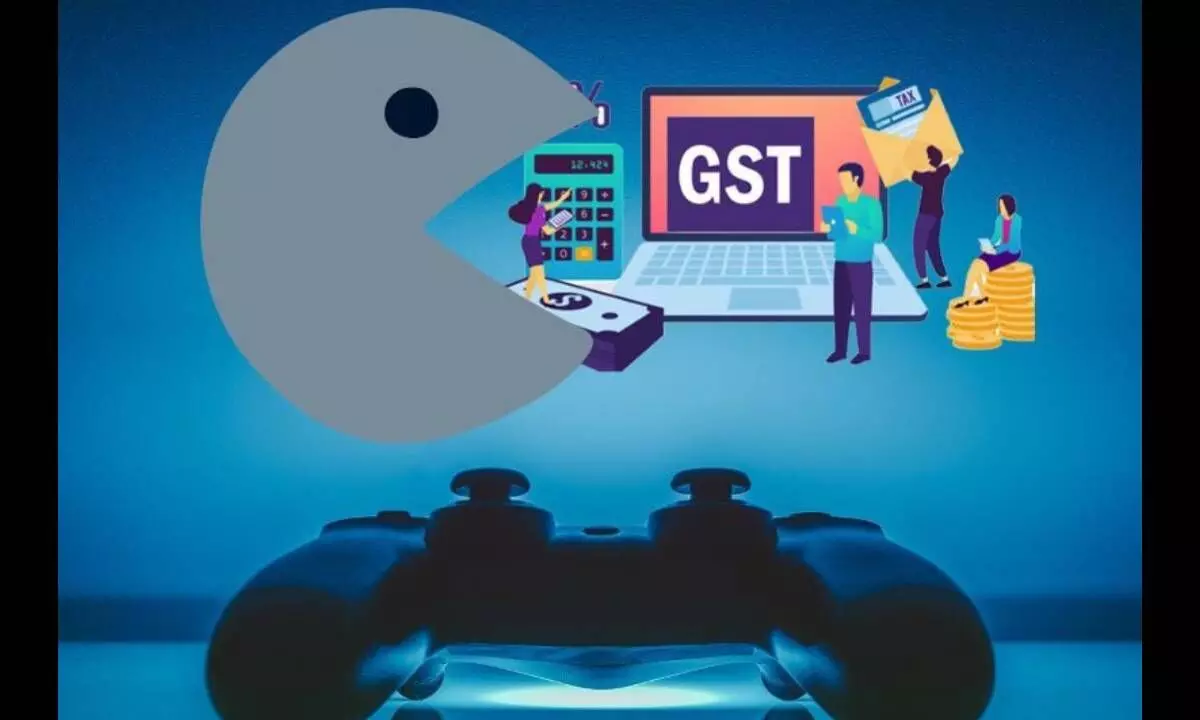Forget global leader status, 28% GST will spell doomsday; Gaming industry cautions PMO
Jittery Indian gaming sector warns of massive loss of revenue, exports and jobs
image for illustrative purpose

More than 120 CEOs and founders of online skill gaming companies and game developers along with all the industry bodies have written to the PMO and relevant ministries on the urgent need to protect the interests of the online skill gaming sector.
In a significant recent development, the GST Council announced its decision to impose a 28 per cent tax on online gaming at full-face value, sending shockwaves across the industry as this step is bound to leave them in distress.
Currently, the industry is paying 18 per cent GST on GGR/platform fee. The revised recommendation states, “An increase of GST to 28 per cent on GGR/platform fee will result in a 55 per cent increase in GST quantum. Even though such an increase will be challenging for the industry, it supports this increase to be a contributor to nation-building. However, for the sector to survive, this tax should be levied on the platform fee/gross gaming revenue that is earned by the industry. This is similar to any other technology service platform, where only the revenue that platforms earn is considered for the purpose of levy of GST.”
Online skill gaming, with a $20 billion enterprise valuation, $2.5 billion in revenue and $ one billion in annual taxes, is set to grow by 30 per cent CAGR to reach $five billion in revenue by 2025. The total number of Indian online gamers grew from 360 million in 2020 to over 420 million in 2023. India’s gaming industry attracted FDI of about $500 million between 2014 and 2020 and over $1.5 billion between January 2021 and June 2022. The industry currently supports over one lakh direct and indirect jobs, a figure that is expected to grow substantially in the next few years.
The industry’s letter addressed to the PMO says
“The proposal to charge GST on the full deposit value will reverse the growth trajectory of the industry. This would potentially have devastating implications (including shut down of businesses) for MSMEs and startups that may not have the capital reserves to withstand such unprecedented tax increase. Further, this decision will encourage illegal offshore gambling operators, drive Indian users to them and ultimately lead to neither optimal tax collection nor the growth of the legitimate industry.”
The industry also highlighted eight core points in the letter that underscore the adverse impact of such taxation It urged the PMO to usher in a viable and progressive GST regime and reconsider the latest bolt from the blue.
The letter goes on to add that it will hamper the Digital India Initiative and PM’s Vision. A 400-500 per cent increase in GST burden will impede the growth potential of the industry and the survival of many MSMEs and startups. There will be significant job losses, which will directly impact livelihoods. Apart from adversely affecting consumer affordability, the threat of proliferation of black economy and numerous criminal activities are also bound to be the off-shoots, the industry has cautioned.
“Offshore gambling sites will be the unintended beneficiaries and this will result in substantial tax loss to the government besides exposing Indian gamers to harmful offshore gambling websites, which is detrimental to the interests of the government. It will stifle FDIs after the earlier decision to bring in online gaming intermediaries within its ambit was received extremely positively and would have resulted in significant FDI inflows”, was the industry’s plea.
The decision is bound to debilitate potential investors, both domestic and foreign, from considering the online gaming sector in India as a viable investment destination. In addition, the current $2.5 billion plus in investments will be at stake, they said. It cautions the government that the scenario will so emerge that India will lose an opportunity to become a global gaming leader. Apart from that is the impact on exports, which will mean long-term net revenue loss for the exchequer,” the letter stated.

